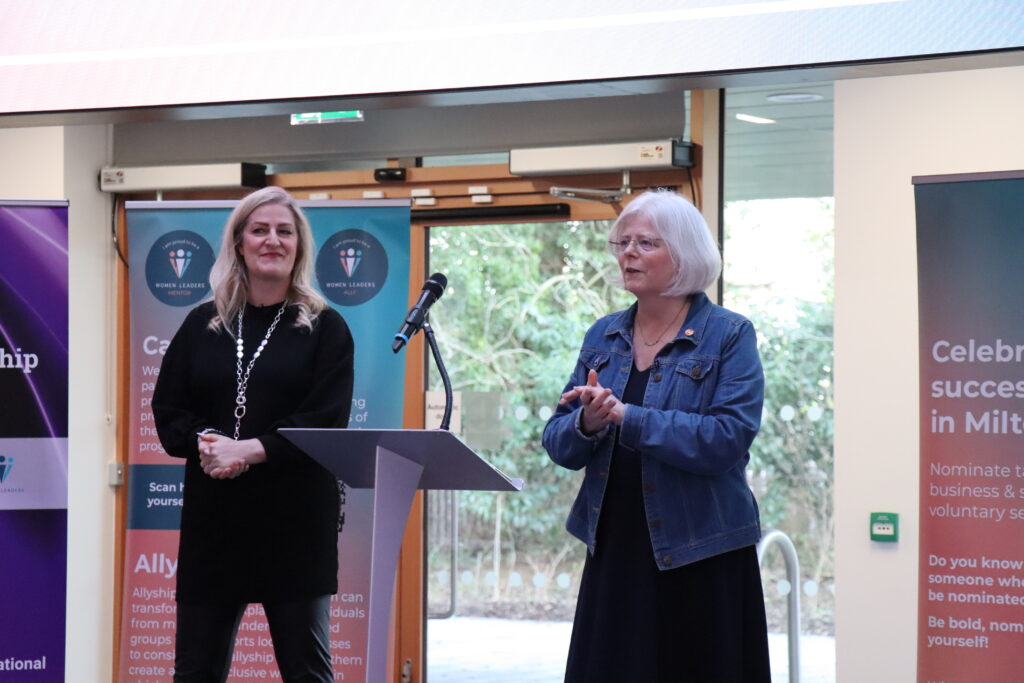
As Women Leaders approaches its 10th anniversary in 2025, we find ourselves at a pivotal juncture—a moment to reflect on progress, celebrate achievements, and take stock of the challenges that lie ahead. What began as a grassroots initiative to spotlight the exceptional accomplishments of women in Milton Keynes has evolved into a dynamic force driving systemic change, advocating for gender equity, and nurturing diversity in leadership across all sectors. The past decade has taught us that while strides have been made, the fight for equality and inclusion is far from over.
Across the UK, women are increasingly making their mark. From boardrooms to Parliament, we’ve seen a remarkable rise in representation. For the first time, women now make up over 40% of MPs in Westminster and 46% of members in the Scottish Parliament. Similarly, the FTSE 350’s achievement of 40% female representation on boards—three years ahead of the 2025 target—underscores significant progress in corporate leadership. But beneath these milestones lies a more complex narrative. While women are securing boardroom seats, they are often relegated to non-executive roles, and only 10 out of 100 FTSE CEOs are women. The stark gender pay gap at senior levels further highlights the sobering reality that equality remains fragile and incomplete.
The story becomes even more pronounced when we examine the intersection of gender and race which is a stark reminder that the path to progress is neither linear nor uniform. Progress must be inclusive, and it must be intentional.

At Women Leaders, we have always advocated for amplifying the voices of women across all walks of life. Our mission has evolved into more than celebrating individual accomplishments—it’s about creating a culture where every voice is valued. The past decade has shown us the power of collective action. Companies are taking significant steps to address diversity, but we cannot afford to grow complacent. Building a diverse talent pipeline—particularly for executive roles—remains both a challenge and an opportunity. The Women to Watch report from Cranfield School of Management paints a hopeful picture by identifying high-calibre female professionals who could close the CEO gap. However, cultivating such talent requires sustained effort and commitment.
The need for change is increasingly urgent as we approach 2025. Legislative shifts, such as the anticipated Equality (Race and Disability) Bill and the Employment Rights Bill, will likely reshape the DEI landscape in workplaces. Organisations will be challenged not only to comply but to lead by embedding inclusivity at their core. One promising development is the use of data-driven DEI strategies, which allow companies to measure impact in real-time, shift focus when needed and achieve measurable outcomes.
To fully embrace these advancements, change is not a solo endeavour—it cannot be achieved within organisational silos. Building an inclusive culture demands collaboration, open dialogue, and mutual support. Women Leaders has been intentional about fostering such partnerships and creating platforms for critical conversations in Milton Keynes. Our work has shown us that real progress comes from bringing as many voices as possible to the table—each adding unique perspectives, each contributing to the change we hope to sustain.
But why does this matter? Because the ripple effects of women’s leadership go far beyond boardrooms and conference halls. Women at the helm pave the way for future leaders, foster environments where innovation thrives and demonstrate the resilience and adaptability that companies need to succeed in uncertain times. They drive economic growth, enrich workplace cultures, and inspire generations to come.
Yet, progress is precarious. We’ve seen fatigue in conversations about gender equity. Nearly half of Britons believe the conversation has gone far enough, creating a risk of stalled momentum. But such dialogue is not a passing trend—it must remain front and centre. Education on workplace diversity, equity, and inclusion is critical. Leaders must actively champion these initiatives, ensuring that they permeate the very fabric of their organisations.
As we mark a decade of Women Leaders, it is clear that the work we do today will echo into the future. To the business leaders of Milton Keynes, I implore you to keep pushing, keep questioning, and keep championing. Together, we can create workplaces that thrive on diversity and prepare the next generation to meet and exceed the challenges of tomorrow.
Dr Julie Mills OBE DL, Chair of Women Leaders


